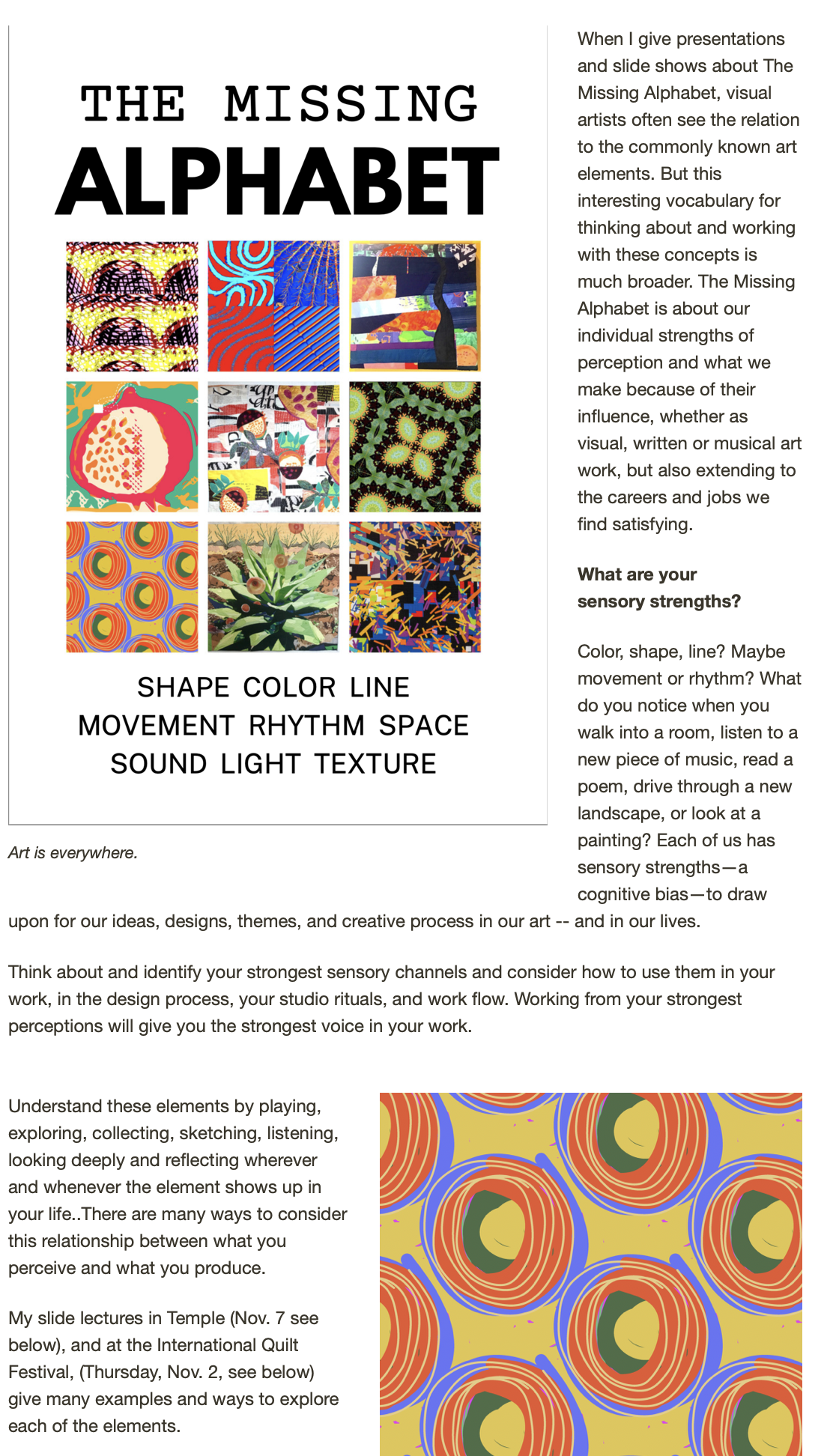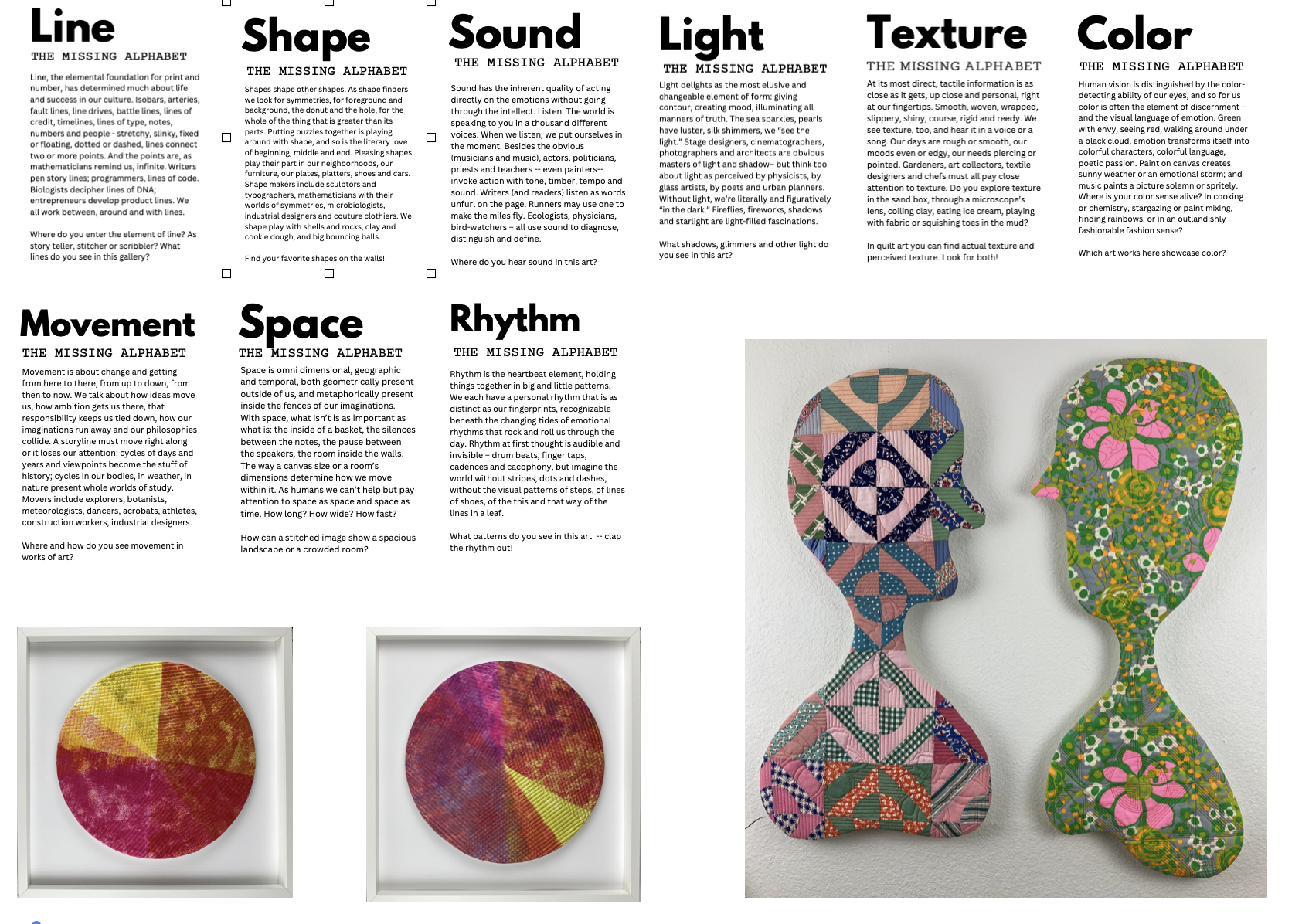As I research options for my on-line course -- probably "Text on the Surface" after feedback from a number of readers on and off the site -- this video by Dr. Michael Wesch, a cultural anthropologist, came across my path. Synchronicity was working overtime -- Linda wanted me to see if because of the implications for her Mass Communications teaching and research, and it opens ups a whole host of possibilities for teaching with the aid of electronic, digital interfaces. He presents an overview of the educational issues of teaching and learning in a web 2.0 world, and says that no one, no matter his or her age, is starting from scratch with this media --"There are no natives here," he says, explaining that most of what is happening of relevance to educators today had been launched within the past 3 years, and that daily hundreds of other interfaces are being created, tested, marketed, and used or discarded. So, no excuses, you aren't too old. Even today's 18 year old is faced with the same challenges of learning these new tools. Most of them, Wesch says, are still working just superficially, with no experience either at actually using the creative potential of these new tools.
It's a fairly long piece -- and specifically directed to university professors teaching young people -- but if you are interested in the landscape of kids, media, information and teaching, it's well worth the time. Although my ambitions for using technology aren't that ambitious, I do think that as a teacher the meta-message about the learning environment is one that must inform my work, in and out of the studio. Obviously, my "learners" are already looking for something meaningful; most of you who might take a course are already self-selected -- no course credit here. You might just try the first 30 minutes, that covers most of the big ideas-- though the remainder is a fascinating look at how his students recreated world history and cultures through a simulation based on "rules" of anthropology and using web-based tools.
One of the key ideas in this longer piece is well presented in a shorter, visual piece, "Information R/evolution." That how we have traditionally thought about information, as a thing, that can be catagorized -- filed -- in one kind of linear way, is no longer the case. Now information can exist simultaneously in more than one category, can be user-defined (rather than "expert" defined) and is no longer defined to a material form. "There is no shelf."
Wesch also produced "The Machine is Using Us," an great piece produced in 2007 that became one of the most-watched videos in the blogosphere ever. If you haven't seen it, the link is here.
If you are interested in creating web-based learning portals for yourself, fear not. Here are a few places I have found to play around. The first two are wiki-like aggregators that you can customize, keep private or publish to the world. Flock is a social network friendly browser that puts Flickr, My Space, etc all on your home page, Ning is a social network site that lets you build pages and whole sites around interests and then lets people subscribe to them. Stumble is a nonlinear "earch" engine that lets you find web pages you didn't know to look for!
Please remember: YOU CAN NOT BREAK ANYTHING DOING THIS. You probably can't even screw up your computer unless you have no virus protection and use a PC and that's only if you start downloading a lot of strange applications. Check the site, make sure it's real and exists with actual content, not just links do other webpages,
No one is going to grade you or make you feel stupid except yourself. Yes, you are entering a public arena sometimes, but you control that. Most of the sites that I am exploring have a "private" function where only you have access to the material, links, tags that you upload or make use of. However, I would also challenge you to release some of your fears about going public on the web. I don't believe that I have opened myself up to harm, to stalking, to any physical danger by having a blog or by participaing in wikis (used authored sites). I have made many interesting connections with people whose ideas and input have stimulated my learning and my life. It is a new frontier, and we all can grow with it.
I'd love any meta-sites that you like to use. New ones appear everyday. Some last, some don't -- we are in the equivalent of the wild wild west frontier days here -- nearly lawless, but there are fortunes to be made.




